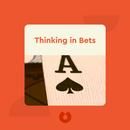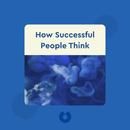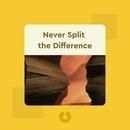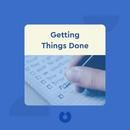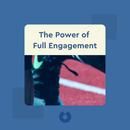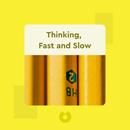Thinking, Fast and Slow:
Your highlights:
Of two minds: how our behavior is determined by two different systems – one automatic and the other considered.
System 1 is the part of our brain that operates intuitively and suddenly, often without our conscious control. You can experience this system at work when you hear a very loud and unexpected sound. What do you do? You probably immediately and automatically shift your attention toward the sound. That’s System 1.
28 January, 2020 03:25
Share
System 2 is what we think of when we visualize the part of the brain responsible for our individual decision-making, reasoning and beliefs. It deals with conscious activities of the mind such as self-control, choices and more deliberate focus of attention.
28 January, 2020 03:26
Share
The lazy mind: how laziness can lead to errors and affect our intelligence.
What happened was that your impulsive System 1 took control and automatically answered by relying on intuition. But it answered too fast.
28 January, 2020 03:26
Share
This laziness is unfortunate, because using System 2 is an important aspect of our intelligence. Research shows that practicing System-2 tasks, like focus and self-control, lead to higher intelligence scores. The bat-and-ball problem illustrates this, as our minds could have checked the answer by using System 2 and thereby avoided making this common error
28 January, 2020 03:27
Share
Autopilot: why we are not always in conscious control of our thoughts and actions.
What do you think when you see the word fragment "SO_P"? Probably nothing. What if you first consider the word "EAT"? Now, when you look again at the word "SO_P," you would probably complete it as "SOUP." This process is known as priming.
8 October, 2019 06:00
Share
Priming, just like other societal elements, can influence an individual's thoughts and therefore choices, judgment and behavior – and these reflect back into the culture and heavily affect the kind of society we all live in.
8 October, 2019 06:04
Share
Incredibly, the priming of actions and thoughts is completely unconscious; we do it without realizing. What priming therefore shows is that despite what many argue, we are not always in conscious control of our actions, judgments and choices. We are instead being constantly primed by certain social and cultural conditions.
28 January, 2020 03:28
Share
Priming, just like other societal elements, can influence an individual's thoughts and therefore choices, judgment and behavior – and these reflect back into the culture and heavily affect the kind of society we all live in.
28 January, 2020 03:28
Share
Snap judgments: how the mind makes quick choices, even when it lacks enough information to make a rational decision.
In other words, you liked one aspect of Ben’s character, and so you assumed you would like everything else about him. We often approve or disapprove of a person even when we know little about them. Our mind’s tendency to oversimplify things without sufficient information often leads to judgment errors. This is called exaggerated emotional coherence, also known as the halo effect: positive feelings about Ben’s approachability cause you to place a halo on Ben, even though you know very little about him.
28 January, 2020 03:29
Share
The halo effect and confirmation bias both occur because our minds are eager to make quick judgments. But this often leads to mistakes, because we don’t always have enough data to make an accurate call. Our minds rely on false suggestions and oversimplifications to fill in the gaps in the data, leading us to potentially wrong conclusions. Like priming, these cognitive phenomena happen without our conscious awareness and affect our choices, judgments and actions.
28 January, 2020 03:30
Share
Heuristics: how the mind uses shortcuts to make quick decisions.
The substitution heuristic is where we answer an easier question than the one that was actually posed. Take this question, for example: "That woman is a candidate for sheriff. How successful will she be in office?" We automatically substitute the question we’re supposed to answer with an easier one, like, "Does this woman look like someone who will make a good sheriff
28 January, 2020 03:31
Share
Next, there is the availability heuristic, which is where you overestimate the probability of something you hear often or find easy to remember. For example, strokes cause many more deaths than accidents do, but one study found that 80 percent of respondents considered an accidental death a more likely fate
28 January, 2020 03:32
Share
No head for numbers: why we struggle to understand statistics and make avoidable mistakes because of it.
In fact, base-rate neglect is extremely common. One of the reasons we find ourselves ignoring the base rate is that we focus on what we expect rather than what is most likely. For example, imagine those cabs again: If you were to see five red cabs pass by, you’d probably start to feel it’s quite likely that the next one will be yellow for a change. But no matter how many cabs of either color go by, the probability that the next cab will be red will still be around 80 percent – and if we remember the base rate we should realize this. But instead we tend to focus on what we expect to see, a yellow cab, and so we will likely be wrong. Base-rate neglect is a common mistake connected with the wider problem of working with statistics. We also struggle to remember that everything regresses to the mean. This is the acknowledgment that all situations have their average status, and variations from that average will eventually tilt back toward the average
28 January, 2020 03:33
Share
Past imperfect: why we remember events from hindsight rather than from experience.
First, there is the experiencing self, which records how we feel in the present moment. It asks the question: "How does it feel now?" Then there is the remembering self, which records how the entire event unfolded after the fact. It asks, "How was it on the whole?" The experiencing self gives a more accurate account of what occurred, because our feelings during an experience are always the most accurate. But the remembering self, which is less accurate because it registers memories after the situation is finished, dominates our memory.
28 January, 2020 03:35
Share
This survey offers us a clear example of duration neglect, the peak-end rule, and our faulty memories.
28 January, 2020 03:37
Share
Mind over matter: how adjusting the focus of our minds can dramatically affect our thoughts and behaviors.
In a state of cognitive ease, the intuitive System 1 is in charge of our minds, and the logical and more energy-demanding System 2 is weakened. This means we are more intuitive, creative and happier, yet we’re also more likely to make mistakes. In a state of cognitive strain, our awareness is more heightened, and so System 2 is put in charge. System 2 is more ready to double-check our judgments than System 1, so although we are far less creative, we will make fewer mistakes. You can consciously influence the amount of energy the mind uses to get in the right frame of mind for certain tasks. If you want a message to be persuasive, for example, try promoting cognitive ease.
28 January, 2020 03:38
Share
Cognitive strain, on the other hand, helps us succeed at things like statistical problems. We can get into this state by exposing ourselves to information that is presented to us in a confusing way, for example, via hard-to-read type. Our minds perk up and increase their energy levels in an effort to comprehend the problem, and therefore we are less likely to simply give up.
28 January, 2020 03:39
Share
Taking chances: the way probabilities are presented to us affects our judgment of risk.
The way we judge ideas and approach problems is heavily determined by the way they are expressed to us. Slight changes to the details or focus of a statement or question can dramatically alter the way we address it.
28 January, 2020 03:41
Share
For example, people will consider a rare event as more likely to occur if it’s expressed in terms of relative frequency rather than as a statistical probability.
28 January, 2020 03:42
Share
Another way our attention is distracted from what is statistically relevant is called denominator neglect. This occurs when we ignore plain statistics in favor of vivid mental images that influence our decisions.
28 January, 2020 03:43
Share
Not robots: why we don't make choices based purely on rational thinking.
For a long time, a powerful and influential group of economists suggested that we made decisions based purely on rational argument. They argued that we all make choices according to utility theory, which states that when individuals make decisions, they look only at the rational facts and choose the option with the best overall outcome for them, meaning the most utility
28 January, 2020 03:43
Share
But what if we complicate things a little? Let’s say that their $5 million fortunes are the end-result of a day at the casino, and the two had vastly different starting points: John walked in with a mere $1 million and quintupled his money, whereas Jenny came in with $9 million that dwindled down to $5 million. Do you still think John and Jenny are equally happy with their $5 million? Unlikely. Clearly then, there is something more to the way we value things than pure utility.
28 January, 2020 03:44
Share
Gut feeling: why rather than making decisions based solely on rational considerations, we are often swayed by emotional factors.
The first reason is that we value things based on reference points. Starting with $1,000 or $2,000 in the two scenarios changes whether we’re willing to gamble, because the starting point affects how we value our position. The reference point in the first scenario is $1,000 and $2,000 in the second, which means ending up at $1,500 feels like a win in the first, but a distasteful loss in the second. Even though our reasoning here is clearly irrational, we understand value as much by our starting point as by the actual objective value at the time.
28 January, 2020 03:49
Share
diminishing sensitivity principle: the value we perceive may be different from its actual worth. For instance, going from $1,000 to $900 doesn’t feel as bad as going from $200 to $100, despite the monetary value of both losses being equal. Similarly in our example, the perceived value lost when going from $1,500 to $1,000 is greater than when going from $2,000 to $1,500.
28 January, 2020 03:50
Share
Kahneman’s prospect theory challenges utility theory by showing that when we make choices, we don’t always act in the most rational way.
28 January, 2020 03:50
Share
False images: why the mind builds complete pictures to explain the world, but they lead to overconfidence and mistakes.
In order to understand situations, our minds naturally use cognitive coherence; we construct complete mental pictures to explain ideas and concepts. For example, we have many images in our brain for the weather. We have an image for, say, summer weather, which might be a picture of a bright, hot sun bathing us in heat. As well as helping us to understand things, we also rely on these images when making a decision
28 January, 2020 03:51
Share
One way to avoid mistakes is to utilize reference class forecasting. Instead of making judgments based on your rather general mental images, use specific historical examples to make a more accurate forecast. For example, think of the previous occasion you went out when it was a cold summer day. What did you wear then? In addition, you can devise a long-term risk policy that plans specific measures in the case of both success and failure in forecasting. Through preparation and protection, you can rely on evidence instead of general mental pictures and make more accurate forecasts
28 January, 2020 03:52
Share
About the book:
Daniel Kahneman’s Thinking, Fast and Slow (2011) – a recapitulation of the decades of research that led to his winning the Nobel Prize – explains his contributions to our current understanding of psychology and behavioral economics. Over the years, Kahneman and his colleagues, whose work the book discusses at length, have significantly contributed to a new understanding of the human mind. We now have a better understanding of how decisions are made, why certain judgment errors are so common and how we can improve ourselves.
About the author:
Daniel Kahneman, PhD, won the Nobel Prize in Economics in 2002. He is the Senior Scholar at the Woodrow Wilson School of Public and International Affairs, Professor of Psychology and Public Affairs Emeritus at the Woodrow Wilson School, Eugene Higgins Professor of Psychology Emeritus at Princeton University, and a fellow of the Center for Rationality at the Hebrew University in Jerusalem.





